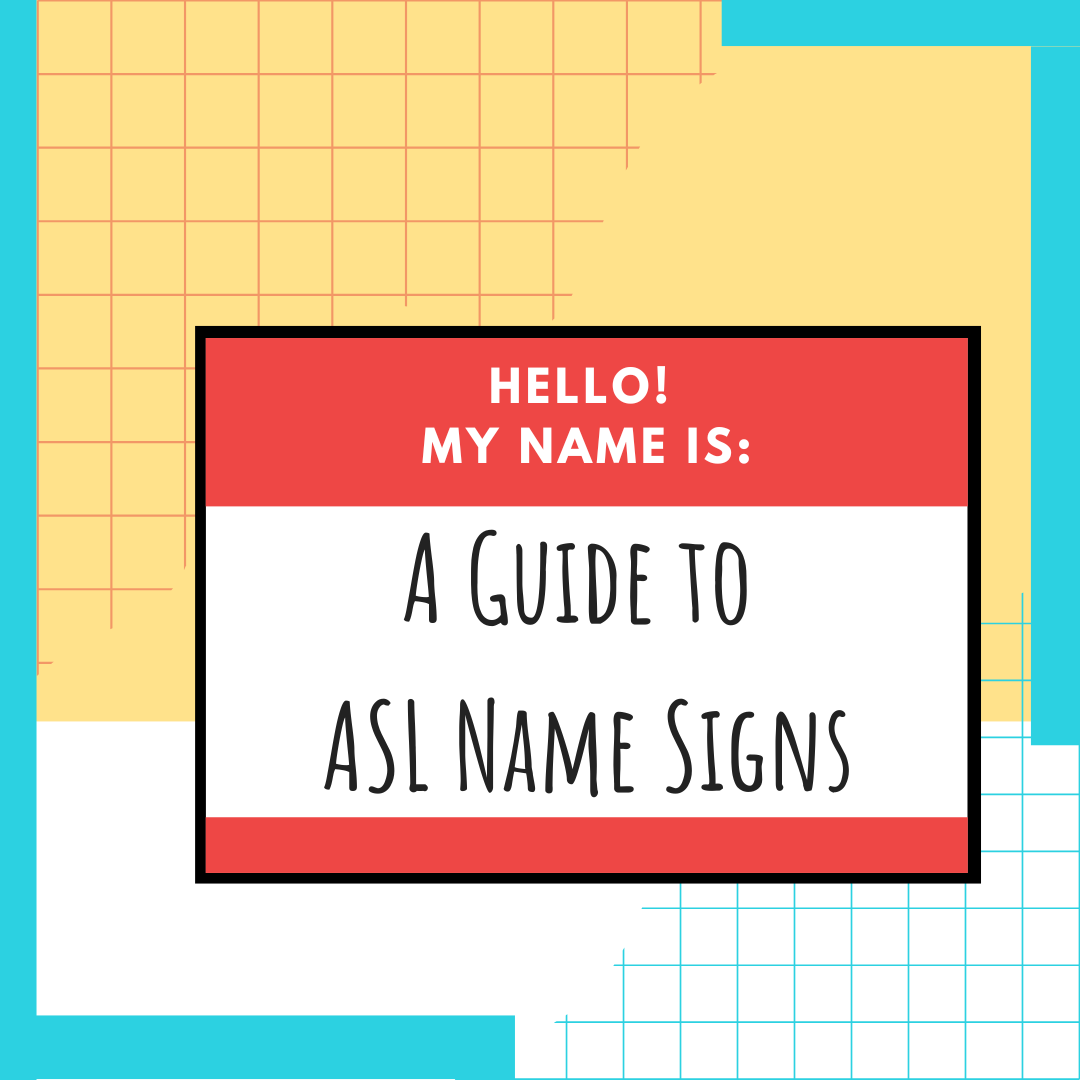
American Sign Language Symbols and Letters
There are many different American Sign Language symbols and letters that are used in a variety of ways.
There are symbols used for writing ASL signs, glossing ASL sentences, and fingerspelling in ASL.
Symbols for Writing ASL Signs
American Sign Language symbols were developed in order to write how ASL signs are signed. This is called SignWriting. It was developed by Valerie Sutton in 1974.

Notice how the sign language symbols are able to indicate all four of the main sign parameters:
- Handshape (HS)
- Movement (MV)
- Location (LOC)
- Palm Orientation (PO)
In the image for DEAF, the sign parameters are shown this way:
- HS: The square and line symbol indicates one hand with the 1-handshape
- MV: The asterisks (*) indicate contact with the face during the movement
- LOC: The head symbol indicates where in the signing area this is signed
- PO: The white part of the square and line symbol indicates the position of the palm
In the image for WORLD, the sign parameters are shown this way:
- HS: The circles with three lines indicate two hands with the W-handshape
- MV: The ovals with arrows indicate the circular movement and the asterisk (*) indicates contact with the two hands.
- LOC: The absence of any body part symbol indicates that this is signed in the neutral signing area
- PO: The white part of the circles with three lines indicates the positions of the palms
The official website (and the best resource) for these types of sign language symbols is Sutton’s SignWriting Site.
Symbols for Glossing ASL Sentences
Because ASL is an unwritten language, glossing is a technique used to create a written version of ASL.
There are certain rules and symbols that are used when glossing a sentence in ASL. Here are some examples:
Every sign is written in CAPITAL LETTERS.
ME LIKE RICE
“I like rice.”
Signs that are translated into more than one English word are shown with dashes. The lower case words are implied, so they are not signed separately.
YESTERDAY MOM GO-to STORE
“Mom went to the store yesterday.”
Fingerspelling is shown with dashes between the capital letters or with “fs-“.
HER NAME S-U-Z-Y
HER NAME fs-SUZY
“Her name is Suzy.”
Gestures, or words that aren’t necessarily signs, are shown with quotation marks. An example of using gestures would be glossing a name sign.
“K tap shoulder”
Lexicalized fingerspelling is shown with a number sign (“#”). When you see the number sign, this means you fingerspell the word, but use the lexicalized version that is produced more like a sign than like a fingerspelled word.
SHE ARRIVE #EARLY!
“She arrived very early.”
Signs that are repeated are shown with plus symbols (“+”). The number of symbols indicates the number of times the sign is repeated.
SPEECH LONG BORING CONTINUE+++
“That long boring speech seemed to last forever!”
A sign signed with both hands is indicated with (2h), signed with your dominant hand (dh), and signed with your non-dominant hand (nh).
Quotes after a sign specify how the sign is inflected (if necessary).
(2h)CL:4(people in line)”long line”
“That line is so long!”
Signs between lowercase words indicate directionality. The words indicate the direction of the sign between referents.
he-GIVE-her BOOK
“He gave her the book.”
Non-Manual markers and facial expressions are shown on a line above the gloss when learning sign language. Here is how they’re shown:
Topicalization: _____t
WH-word question: _____whq
Yes/no question: _____y/n
Rhetorical question: _____rhq
Conditional statement: _____cond
Affirmative statement: _____aff
Negative statement: _____neg
Mouth movement: _____”…”
For example:
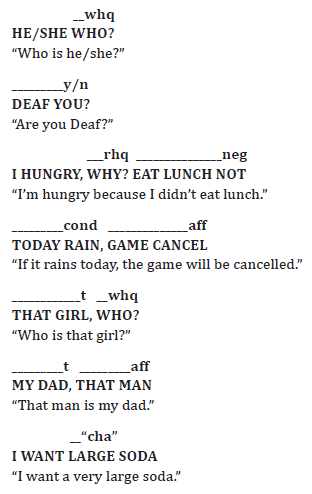
ASL Alphabet Letters/Symbols
The ASL alphabet can also be considered sign language symbols. These visual symbols are used for fingerspelling in ASL.
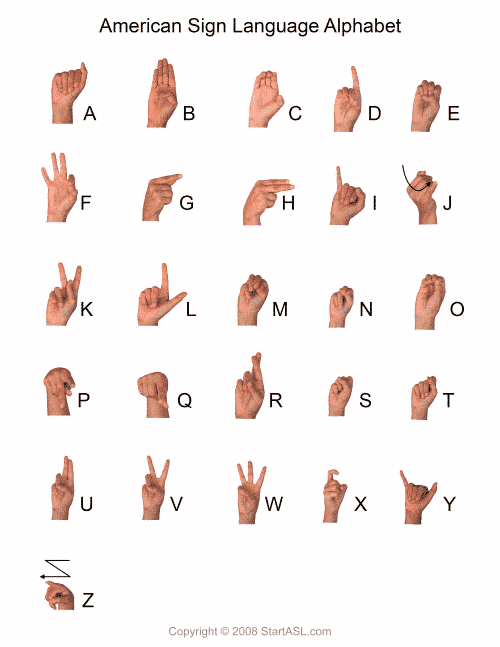
Start Learning ASL Today!
 Ready to start learning real American Sign Language and not just basic signs? Do you want to be a part of the vibrant Deaf community? Check out our Free ASL 1 Course or our Complete 4-Level ASL Course options and start learning ASL today!
Ready to start learning real American Sign Language and not just basic signs? Do you want to be a part of the vibrant Deaf community? Check out our Free ASL 1 Course or our Complete 4-Level ASL Course options and start learning ASL today!

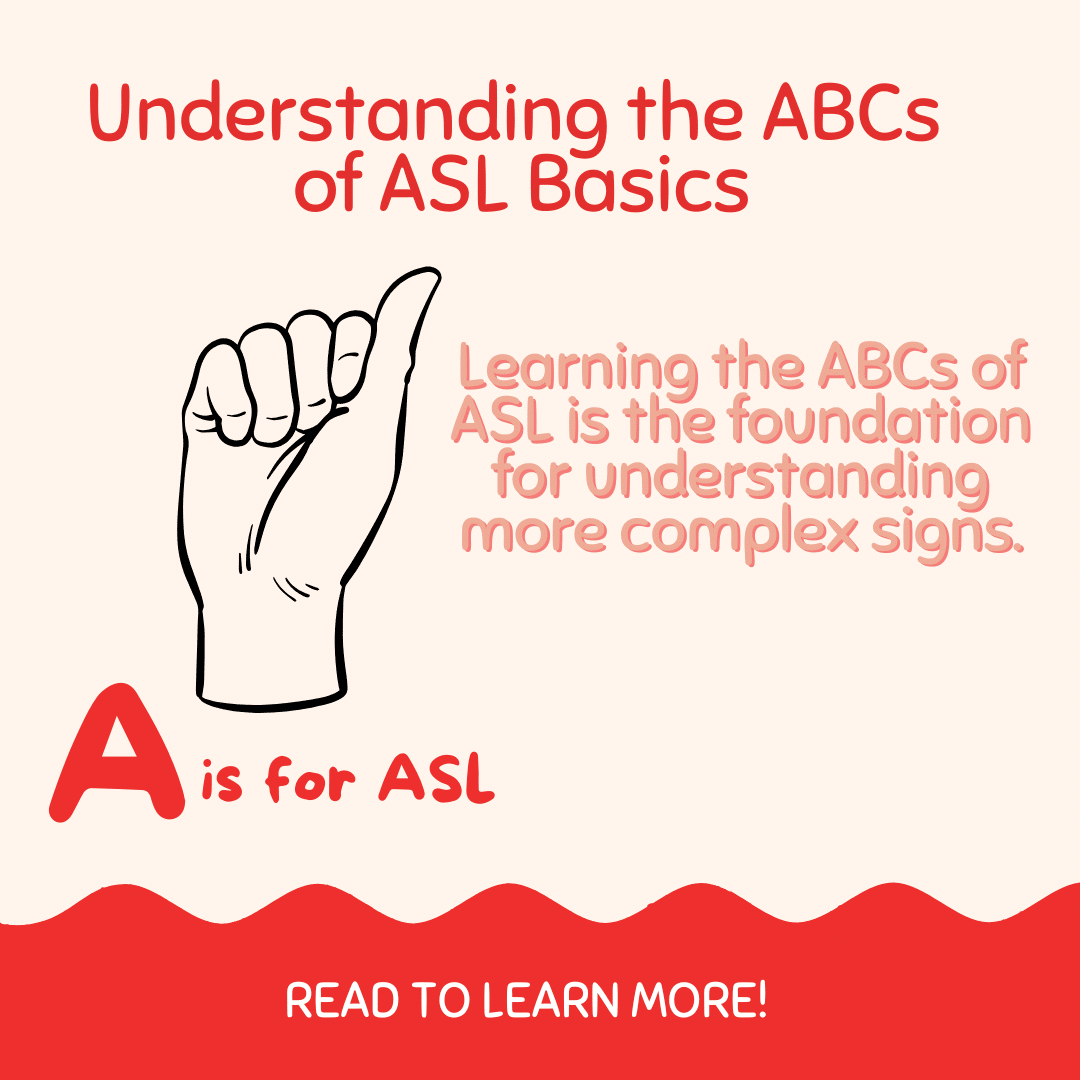
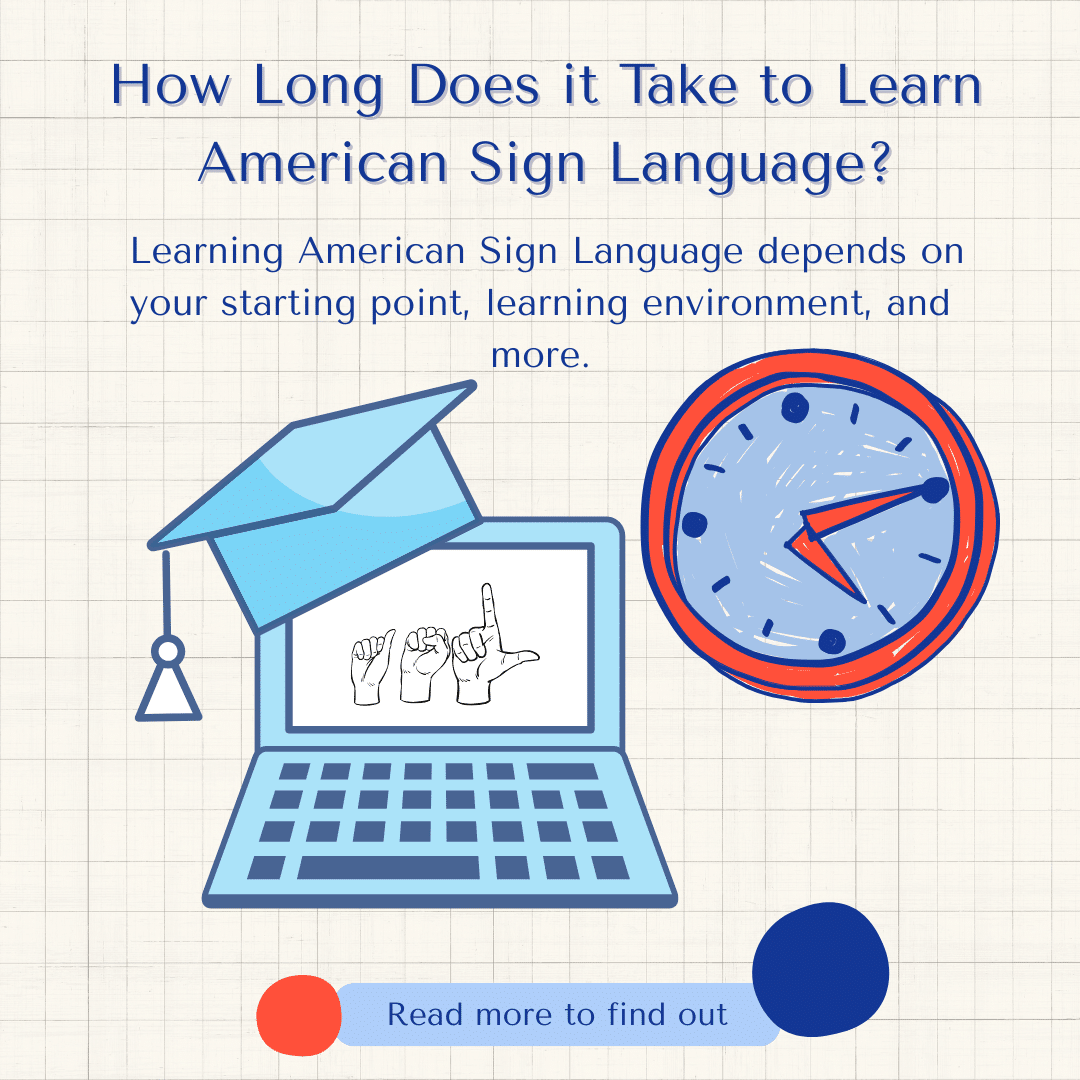






4 Responses
As In Aaron Burr, lol
Very helpful
Is ur last name burr??
i know right